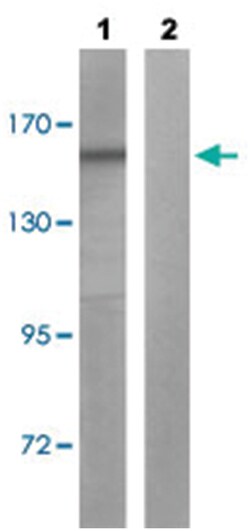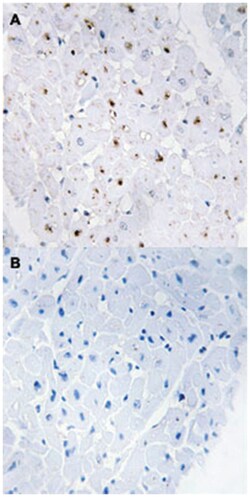Learn More
BLM (phospho T99), Rabbit anti-Human, Mouse, Rat, Polyclonal Antibody, Abnova™
Rabbit polyclonal antibody raised against synthetic phosphopeptide of human BLM.
Supplier: Abnova Corporation PAB29273
Description
The Bloom syndrome gene product is related to the RecQ subset of DExH box-containing DNA helicases and has both DNA-stimulated ATPase and ATP-dependent DNA helicase activities. Mutations causing Bloom syndrome delete or alter helicase motifs and may disable the 3'-5' helicase activity. The normal protein may act to suppress inappropriate recombination. [provided by RefSeq]
Specifications
| BLM | |
| Polyclonal | |
| Rabbit polyclonal antibody raised against synthetic phosphopeptide of human BLM. | |
| In PBS (without mg2+ and Ca2+), 150mM NaCl, pH 7.4 (50% glycerol, 0.02% sodium azide) | |
| P54132 | |
| BLM | |
| Synthetic phosphopeptide (conjugated with KLH) corresponding to residues surrounding T99 of human BLM. | |
| 100 μL | |
| Primary | |
| BLM (phospho T99) polyclonal antibody detects endogenous levels of human BLM only when phosphorylated at threonine 99. | |
| Store at -20°C. Aliquot to avoid repeated freezing and thawing. |
| Immunohistochemistry (PFA fixed), Western Blot | |
| Unconjugated | |
| Immunohistochemistry (1:50∼1:100) Western Blot (1:500∼1:1000) The optimal working dilution should be determined by the end user. | |
| BLM | |
| BS/MGC126616/MGC131618/MGC131620/RECQ2/RECQL2/RECQL3 | |
| Rabbit | |
| Affinity Chromatography | |
| RUO | |
| 641 | |
| Human, Mouse, Rat | |
| Liquid |
Your input is important to us. Please complete this form to provide feedback related to the content on this product.
For Research Use Only

